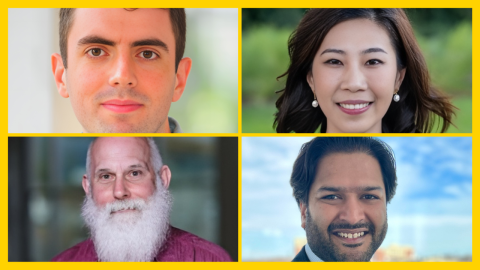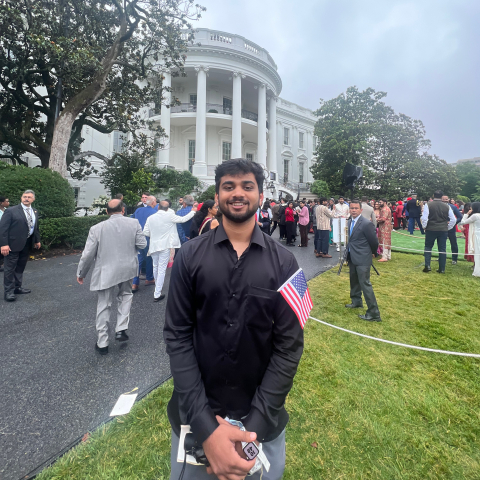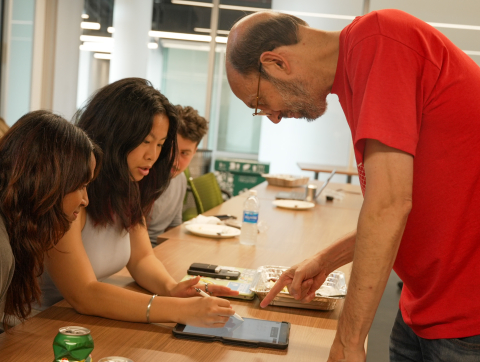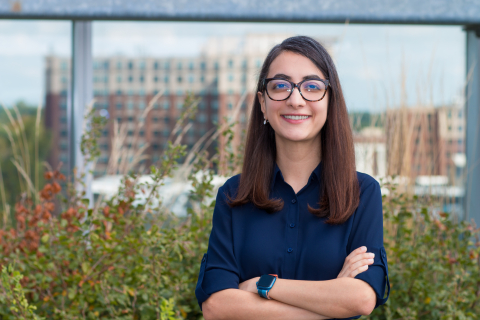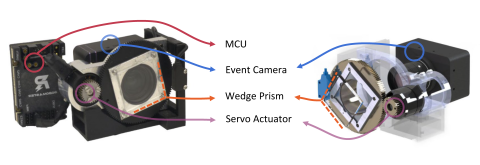Recent News & Accomplishments
2024
The new faculty members will bring expertise ranging from cybersecurity, natural language processing to quantum computing.
The University of Maryland’s Department of Computer Science is set to welcome a cohort of eight new tenure-track faculty. The faculty members, with research expertise spanning a wide range of cutting-edge areas, are expected to enhance the department’s academic and research capabilities. "We are excited to welcome our newest faculty members," said Department Chair Matthias Zwicker , who holds the Elizabeth Iribe Chair for Innovation and the Phillip H. and Catherine C. Horvitz Professorship. "Their perspectives will drive forward impactful research and raise our level of excellence for years... read more
The researchers collaborated with OpenAI, Microsoft and other universities to produce the largest-ever survey paper on prompt engineering.
Generative artificial intelligence (GenAI) systems are becoming increasingly prevalent in both industry and research settings. These systems rely heavily on prompting, or prompt engineering, where developers and end users interact with the AI through carefully designed prompts. Despite the widespread use and research in this area, there remains a lack of standardized terminology and a clear ontological understanding of what constitutes a prompt, largely due to the field's growing nature. In response, University of Maryland undergraduate computer science majors Michael Ilie , Sander Schulhoff... read more
Jordan Boyd-Graber Ying, Furong Huang, Michael Marsh and Abhinav Shrivastava were promoted in the summer of 2024.
The University of Maryland's Department of Computer Science is pleased to announce the promotion of four faculty members, recognizing their contributions to research, teaching and leadership within the field of computer science. The promotions are effective between November 2023 and August 2024. "Our faculty members have truly earned their promotions through their relentless pursuit of innovation, excellence in teaching and innovative research. Their work continues to set new standards in computer science,” said Department Chair Matthias Zwicker , who holds the Elizabeth Iribe Chair for... read more
As an international student, Parmar sought University Career Center support in navigating the sponsorship process for a summer internship.
Why did you decide to study computer science at UMD? I initially enrolled at UMD as a mechanical engineering major, but the computer science (CS) program here really drew me in. After giving it a lot of thought, I decided to switch to CS because the world of artificial intelligence was becoming increasingly compelling to me. The challenging courses at UMD fueled my passion and made me eager to learn more. My academic advisor encouraged me to minor in another field, which inspired me to take business courses. Combining my interests in computer science and business has been incredibly rewarding... read more
Twenty-three students from across the U.S. are gaining invaluable research skills at the University of Maryland this summer through a hands-on program sponsored by the National Science Foundation. The Research Experiences for Undergraduates (REU) program—now in its 12th year at UMD—pairs students in small groups with Maryland faculty and graduate students, exploring diverse topics that include machine learning and AI, quantum simulation, parallel algorithms, and more. Most visiting REU scholars—the majority of them undergraduates with a few high school students mixed in—receive a $7,000... read more
GAMA processes non-speech sounds and non-verbal speech to provide detailed responses.
Imagine robots that can listen to every sound and interpret its meaning, from the rustling of leaves to the hum of a distant engine. Envision machines that not only recognize spoken words but also understand the emotional nuances in a baby's cry or the urgency in a fire alarm. This scenario is closer to reality thanks to innovative research at the University of Maryland’s Departments of Computer Science and Electrical & Computer Engineering . Leading this breakthrough, researchers at UMD have unveiled GAMA , a large language model (LLM) capable of understanding and processing various non-... read more
Bahar Asgari explores flexible, dynamic architectures for high-performance computers.
Bahar Asgari thinks that high-performance supercomputers (HPCs) could run far more efficiently and consume less energy. That’s particularly possible when crunching sparse datasets — ones with many zeros or empty values — that are often encountered in scientific computing. Her solution: low-cost, domain-specific architecture and hardware, and software co-optimization reminiscent of processes in the human brain. “If you look at the performance of modern scientific computers used for sparse problems, they achieve the desired speed, but they don’t run efficiently,” says Asgari, a University of... read more
Researchers’ robotic system aims to improve autonomy for people with mobility issues.
As an undergraduate engineering student in Delhi, India, Amisha Bhaskar took a field trip to a facility for disabled war veterans and met a man who had lost both hands. When she asked him what technologies could improve his life, his reply left an indelible impression: He wanted something so he could take care of himself and not be forced to rely upon others. Now a second-year doctoral student at the University of Maryland studying computer science, Bhaskar has focused on the wounded veteran’s broad request as her area of study. Working with others in the Robotics Algorithms & Autonomous... read more
The camera mimics the involuntary movements of the human eye to create sharper, more accurate images for robots, smartphones and other image-capturing devices.
A team led by University of Maryland computer scientists invented a camera mechanism that improves how robots see and react to the world around them. Inspired by how the human eye works, their innovative camera system mimics the tiny involuntary movements used by the eye to maintain clear and stable vision over time. The team’s prototyping and testing of the camera—called the Artificial Microsaccade-Enhanced Event Camera (AMI-EV)—was detailed in a paper published in the journal Science Robotics in May 2024. “Event cameras are a relatively new technology better at tracking moving objects than... read more
Professor Matthias Zwicker has been reappointed chair of the University of Maryland’s Department of Computer Science for a four-year term, effective July 1, 2024, following a national search. He has been chair of the department since 2020.
Professor Matthias Zwicker has been reappointed chair of the University of Maryland’s Department of Computer Science for a four-year term, effective July 1, 2024, following a national search. He has been chair of the department since 2020. “I am grateful for the leadership Matthias has demonstrated over the past four years and support his vision for his next term,” said Amitabh Varshney , dean of the College of Computer, Mathematical, and Natural Sciences. “His commitment to students and impactful research has helped to further the University of Maryland's position as a Top 10 public... read more


